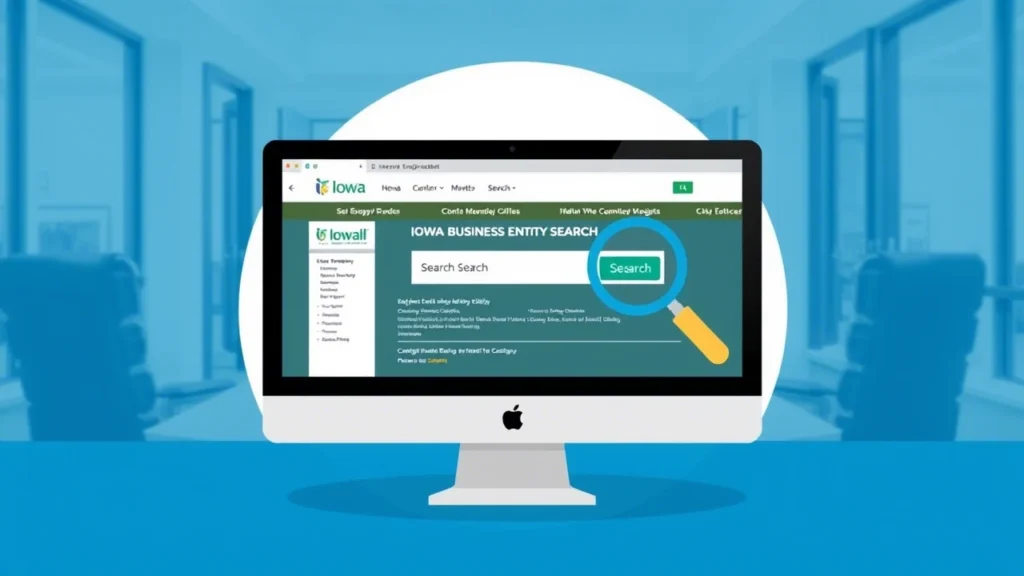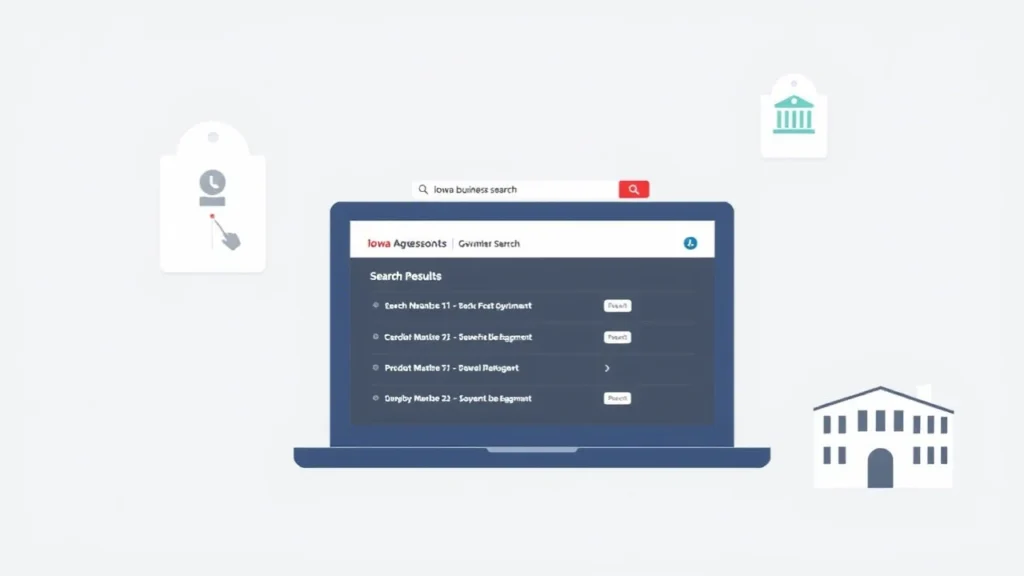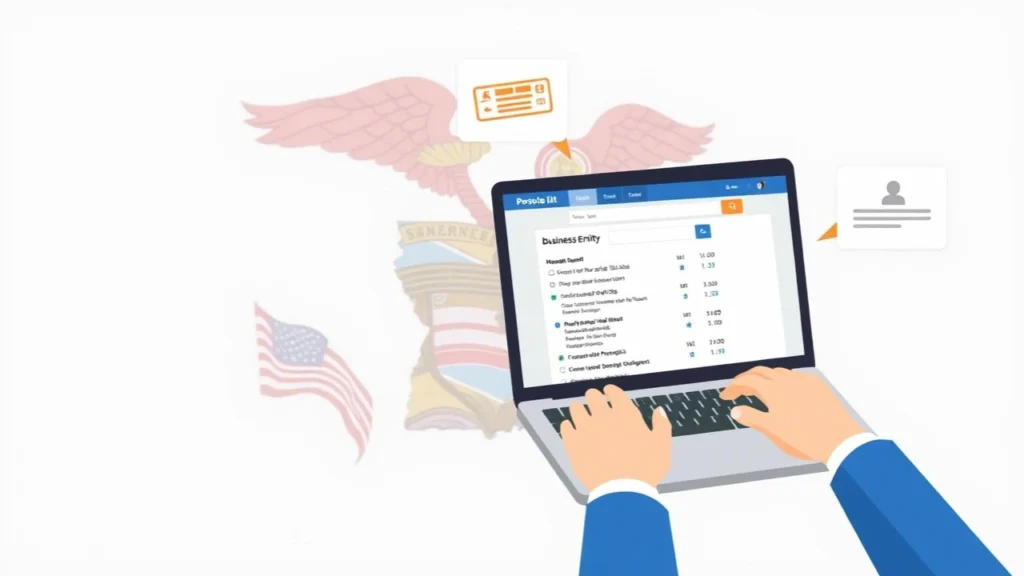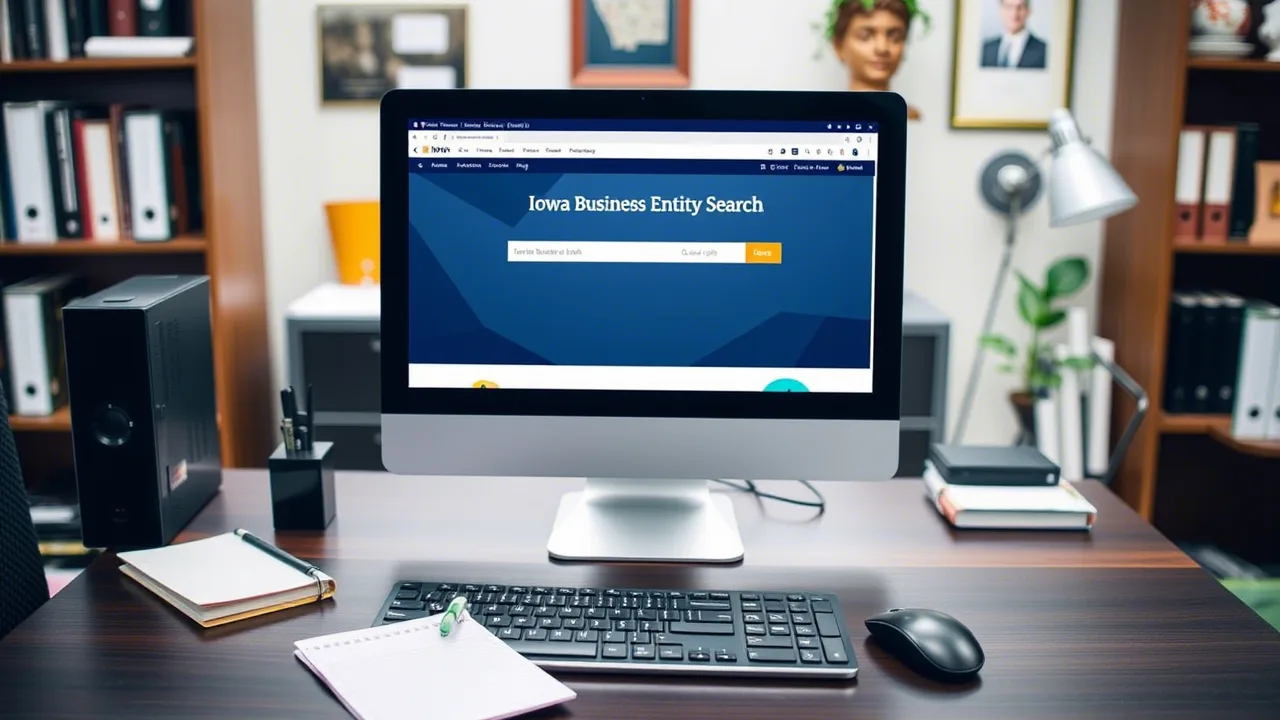Starting a new business or conducting due diligence on an existing one often requires gathering detailed information about its legal standing. One of the most reliable ways to achieve this is by performing an Iowa business entity search. This process allows individuals, entrepreneurs, and corporations to access public records that detail the registration, ownership, and status of businesses operating within the state.
- Why Conducting an Iowa Business Entity Search Matters
- The Role of the Iowa Secretary of State
- Step-by-Step Guide to Performing an Iowa Business Entity Search
- Tips for Optimizing Your Iowa Business Entity Search
- Common Mistakes to Avoid During an Iowa Business Entity Search
- Additional Resources for Enhanced Research
- Real-Life Applications of Iowa Business Entity Searches
- Conclusion
How to navigate this system is essential for anyone looking to establish credibility, ensure compliance, or verify legitimacy. In this guide, we’ll explore everything you need to know about conducting an Iowa business entity search, including why it’s important, how to do it step-by-step, and tips to make the process smoother.
Why Conducting an Iowa Business Entity Search Matters
Before diving into the specifics of how to conduct an Iowa business entity search, let’s examine why this task is so crucial. First and foremost, it provides transparency and accountability in the business ecosystem. Entrepreneurs can confirm whether a business name they wish to use is available before filing their own registration. Additionally, investors and partners can verify the legitimacy of a company before entering into agreements.
Another significant reason to conduct an Iowa business entity search is to ensure compliance with state regulations. Businesses are required to maintain active registrations with the Secretary of State’s office. If a company fails to renew its registration or meet other obligations, it may lose its good standing. By using the Iowa business entity search tool, stakeholders can check if a business is compliant and avoid potential legal or financial risks associated with dealing with non-compliant entities.
Lastly, this search is invaluable for competitive research. Whether you’re launching a startup or expanding your operations, knowing who else operates in your industry can provide insights into market trends and opportunities. With these benefits in mind, let’s move on to understanding how the Iowa business entity search works.

The Role of the Iowa Secretary of State
The Iowa Secretary of State plays a pivotal role in maintaining the database used for Iowa business entity searches. As the custodian of corporate filings, the Secretary of State ensures that all registered businesses adhere to state laws and regulations. Their website serves as the primary platform where users can access comprehensive records related to corporations, limited liability companies (LLCs), partnerships, and more.
When performing an Iowa business entity search, you’ll be interacting directly with the Secretary of State’s online portal. This user-friendly interface allows individuals to look up businesses based on various criteria such as name, ID number, or owner details. Furthermore, the portal provides downloadable documents like Articles of Incorporation, annual reports, and certificates of good standing. These resources not only facilitate transparency but also empower users to make informed decisions regarding their ventures.
Step-by-Step Guide to Performing an Iowa Business Entity Search
Performing an Iowa business entity search might seem daunting at first, but breaking it down into manageable steps simplifies the process significantly. Here’s a detailed walkthrough to help you get started:
Step 1: Access the Official Website
Begin by visiting the official website of the Iowa Secretary of State. Look for the section labeled “Business Services” or something similar. This area will contain links to the search functionality needed for your query. Ensure you’re on the legitimate government site to avoid scams or phishing attempts.
Step 2: Choose Your Search Criteria
Once you’ve accessed the search page, you’ll notice several options for querying the database. You can search by:
- Business Name : Ideal if you already have a specific company in mind.
- Business ID Number : Useful when you have prior knowledge of the entity’s unique identifier.
- Registered Agent : Helps locate businesses managed by a particular individual or firm.
- Owner/Officer Information : Allows you to find entities associated with specific individuals.
Select the option that best suits your needs and enter the relevant information. For example, if you’re checking the availability of a business name, type it into the search bar under the “Business Name” category.
Step 3: Review the Results
After submitting your query, the system will display a list of matching results. Each entry typically includes key details such as the business name, ID number, formation date, status (active or inactive), and registered agent contact information. Take note of any discrepancies or additional entities that share similarities with your intended name.
Step 4: Download Supporting Documents (Optional)
If further verification is necessary, you can download supporting documents from the portal. For instance, viewing the Articles of Incorporation can reveal the original structure and purpose of the business. Similarly, reviewing recent annual reports offers insight into ongoing activities and compliance history.
Step 5: Save or Print Your Findings
Finally, save or print the results for future reference. Having physical copies ensures you have documentation readily available during meetings, negotiations, or audits.

Tips for Optimizing Your Iowa Business Entity Search
While the process itself is straightforward, there are ways to enhance efficiency and accuracy. Consider implementing the following strategies:
- Use Exact Keywords : When searching by name, input precise terms to minimize irrelevant matches. Avoid abbreviations unless you’re certain they match the registered spelling.
- Check Multiple Variations : If you’re uncertain about the exact spelling or format, try different combinations. For example, include variations with hyphens, spaces, or plural forms.
- Leverage Advanced Filters : Some platforms offer advanced filtering options. Use these to narrow down results by county, incorporation date, or entity type.
- Cross-Reference Data : Compare findings from the Iowa business entity search with external sources like Google Maps, LinkedIn, or industry directories for a holistic view.
- Stay Updated : Regulations and procedures may change over time. Regularly visit the Iowa Secretary of State’s website to stay informed about updates affecting business searches.
Common Mistakes to Avoid During an Iowa Business Entity Search
Even seasoned professionals sometimes overlook critical aspects while performing an Iowa business entity search. Being aware of common pitfalls can save you time and effort. Below are some mistakes to watch out for:
- Assuming Name Availability : Just because a business appears inactive doesn’t mean its name is free to use. Names remain reserved until formally abandoned or expired.
- Ignoring Status Details : Pay attention to the “status” column in search results. An entity marked as “dissolved” or “revoked” cannot legally operate, which could impact transactions or partnerships.
- Overlooking Registered Agents : Registered agents act as intermediaries between businesses and the state. Failing to verify this information might lead to communication gaps.
- Not Verifying Ownership : Confirming ownership helps prevent fraud. Misrepresentation of officers or directors can indicate unethical practices.
By steering clear of these errors, you’ll maximize the value derived from your Iowa business entity search efforts.
Additional Resources for Enhanced Research
In addition to the Iowa Secretary of State’s portal, numerous supplementary tools can enrich your research experience. Here’s a breakdown of some valuable resources:
| Resource Type | Description | Benefits |
|---|---|---|
| Federal Databases | Platforms like the U.S. Securities and Exchange Commission (SEC) EDGAR database provide federal-level disclosures. | Offers nationwide context beyond state borders. |
| Local Libraries | Many libraries house archives of business journals, newspapers, and directories. | Provides historical data unavailable online. |
| Industry Associations | Trade groups often publish reports and member lists. | Delivers niche-specific insights and networking opportunities. |
| Credit Reporting Agencies | Services like Dun & Bradstreet offer credit scores and risk assessments. | Assists in evaluating financial stability and reliability. |
Integrating these resources alongside your Iowa business entity search creates a robust framework for thorough analysis.

Real-Life Applications of Iowa Business Entity Searches
To better understand the practical applications of an Iowa business entity search, consider these real-world scenarios:
- Entrepreneurial Ventures : Sarah wants to open a bakery in Des Moines. Before finalizing her plans, she performs an Iowa business entity search to ensure no other bakeries operate under her desired name. She discovers two similarly named businesses but modifies her branding slightly to differentiate herself.
- Investment Due Diligence : John is considering investing in a tech startup. Using the Iowa business entity search tool, he confirms the company’s active status and reviews its annual reports. Satisfied with the findings, he proceeds confidently with his investment.
- Legal Compliance : A law firm representing a client in a contract dispute uses the search function to validate the opposing party’s registration. They uncover inconsistencies that strengthen their case.
These examples illustrate how versatile and impactful Iowa business entity searches can be across various contexts.
Conclusion
Conducting an Iowa business entity search is an indispensable skill for anyone involved in commerce, entrepreneurship, or legal matters. From verifying names and statuses to ensuring compliance and mitigating risks, the utility of this tool extends far beyond simple record retrieval. By mastering the outlined steps, avoiding common mistakes, and leveraging additional resources, you can harness the full potential of the Iowa business entity search system. Whether you’re a budding entrepreneur or a seasoned professional, this guide equips you with the knowledge needed to navigate the complexities of Iowa’s business landscape effectively. So next time you embark on a venture requiring detailed business information, remember to utilize the power of the Iowa business entity search—it’s your gateway to clarity and confidence.
